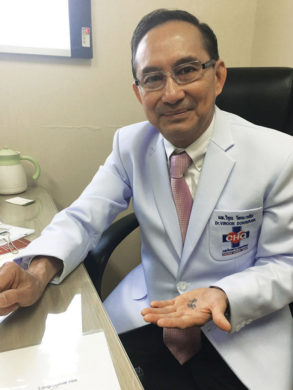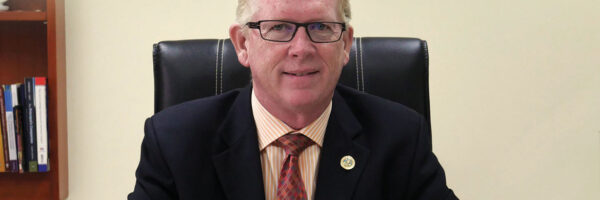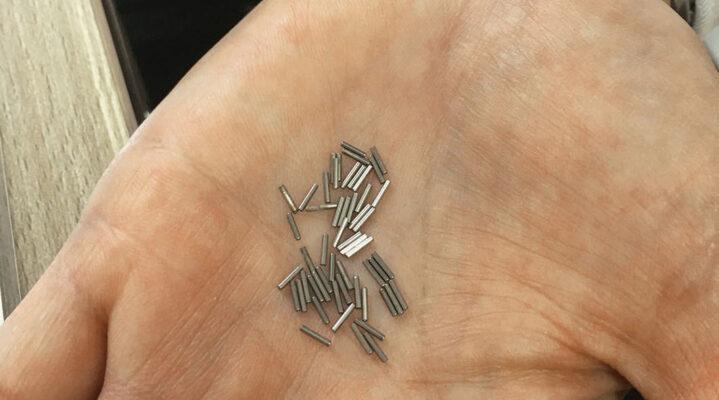
Prostate cancer
As a prostate cancer survivor, I dedicate a significant amount of time raising awareness of this disease, which if detected early enough, can be cured. Part of my research often involves meeting eminent specialists who have dedicated their lives to advancing treatments, knowing that the more knowledge I can take on board, the more I can offer through my now internationally recognised blog http://[email protected]
One such person I met recently was Dr Viroon Donavanik, a radiation oncologist visiting at Chularat 3 Hospital in Bangkok. Originally from Thailand, he received his medical degree from Siriraj Medical School/Mahidol University in 1971, and after a further 3 year internship, mainly in Thailand, he moved on to further his experience and qualifications in the US. Then practicing in Newark, Delaware, his skills and certifications provide a long list stretching from the 60s, when cancer was a scary word associated with death, through to now, when new hope shines for millions. He travels back to Thailand three/four times a year to help keep the country at the forefront of prostate cancer treatment, sometimes holding seminars, but also catching up with family and friends.
I’ve talked to many doctors who’ve known less about prostate cancer than I do, but when you’re diagnosed, you do tend to become your own ‘expert.’ Dr Donavanik’s knowledge was extensive, and he was happy to discuss my case and share his opinions openly. At 71 years of age, he is as alert and lively as a man half his age, and his enthusiasm for medicine is apparent in every word. He warned that because my father had died of prostate cancer and my brother had also been diagnosed, that my son Kyle, who’s in his mid 40s, should be made acutely aware of his increased risk. At that age, his PSA should be around 1.5, and this should be checked annually for any sudden change in speed-of-increase. For example, next year he might still be at 1.5 or even 1.6, but if he suddenly went to 2.5 or 3.0, he should then see a specialist.
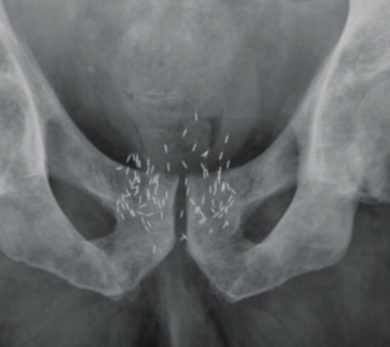
Normal PSA is considered to be less than 4.0ng/mL, and when my result came back in 2010 it was 3.8, within limits, so I thought I was in the clear. Luckily I had a doctor who spotted that even though I was within the required limits, my PSA had grown dramatically since my previous one the year before. Crucially, it’s this rate of increase that gives the best clue that further investigations need to take place.
I had undergone robotic surgery at Addenbrookes Hospital in the UK, but Dr Donavanik wasn’t convinced that there was much advantage to this type of surgery when compared to open surgery; apart from less blood loss and recovery time. He indicated that each case had to be looked at separately, and the next significant advance in treatment would likely be through immunotherapy, boosting the body’s natural defences to kill cancer cells. His specialism, when the cancer is still contained within the prostate gland, is Brachytherapy, a treatment where radioactive iodine 125 seeds are implanted directly into the prostate tissue. The doctor explained, there are two types of this treatment, ‘high dose,’ where the seeds are planted temporarily and then removed, and ‘low dose,’ which are implanted for a short time, never removed and lay dormant after the radiation levels have depleted. He uses the latter.
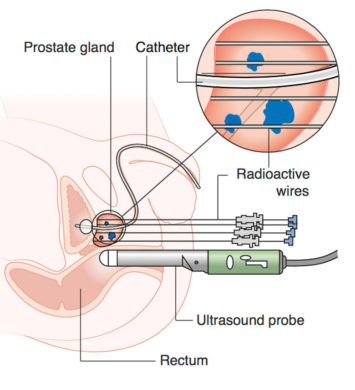
He poured the tiny titanium seeds from a jar into his hand, the same metal that giant jet engine fan blades are made from! I held one, so small, nothing like I expected!
He went on to explain. They are placed one by one through individual implant catheters, into the prostate tissue. Precision is crucial and an ultrasound probe inserted through the anus, helps the surgeon steer each seed to its final destination. Placement can be so exact that nerve bundles that control erectile function and urinary incontinence can be spared damage and cancer targeted in particular areas of the gland. The success rate for this procedure is in the mid to high 90s, and its popularity is growing fast.
Dr Donavanik was very optimistic when talking about the future of cancer treatment. Progress made in trials is always pushing the boundaries, and new or improved treatments are being developed every year.
One in 8 men will eventually be diagnosed with prostate cancer in their lifetime. So when you’re in a bar next, look around, see the crowd chatting and laughing. But likely, many of those men are blissfully unaware of the time bomb they are carrying, and yes, you could be one of them! It’s a lottery, like most other diseases, and if you’re lucky, you’ll avoid them all, but with prostate cancer, you just need a little basic awareness and the will to have that annual blood test.
That means, from the age of 40, you have regular PSA (prostate specific antigen) testing. I did that seven years ago because my father had died of the disease some twenty years before, so I knew my risk was much higher. Go to any of Bangkok’s modern hospitals and ask for a PSA test. They can usually do it straight away, taking a small blood sample and you’ll get the result within an hour. It could be the best 1,000B you ever spend! But don’t forget, even if you are within limits, write that figure down, get it out next year and compare the two. They should be almost the same. If the amount has doubled, see a specialist, it could save your life!
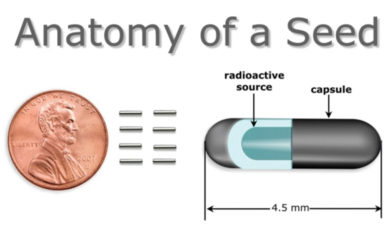
Daniel Sencier was born in London 1951, the son of Belgian/Irish parents who settled in England after the war. He spent his childhood being raised by his grandmother in the Republic of Ireland, before moving to go to school in England. He is married to Beverley, who is Head of an International School in Bangkok, and they have eight children between them.
After service in the military, aircraft and hotel industries, he retired to further his education at the University of Cumbria. He successfully completed a Bachelors Degree in Wildlife & Media, and qualified as an English teacher. Now in Bangkok Daniel is organiser of the ‘Bangkok English speakers lunch group’, encouraging others to improve their English and explore this wonderful city.


